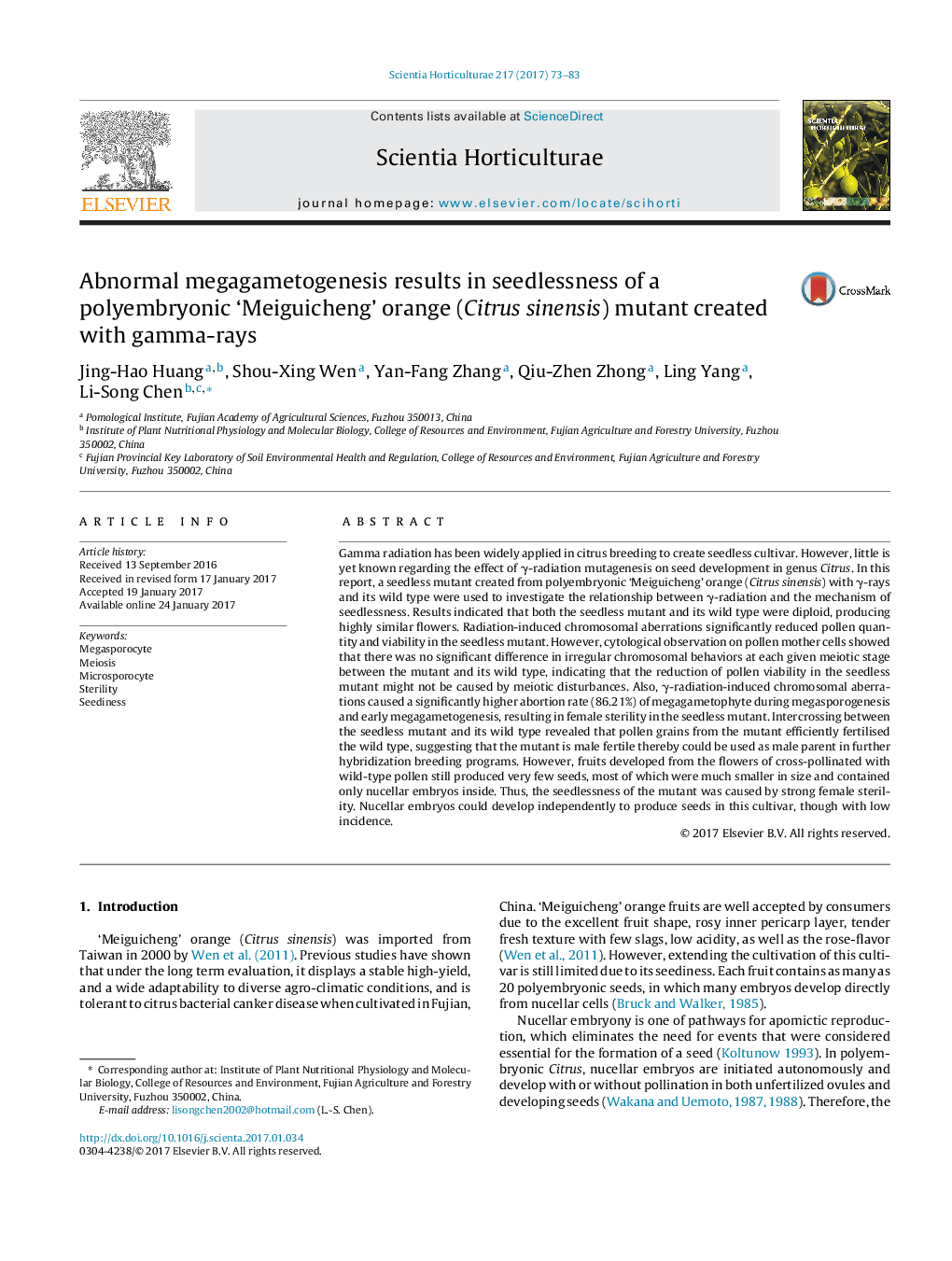| کد مقاله | کد نشریه | سال انتشار | مقاله انگلیسی | نسخه تمام متن |
|---|---|---|---|---|
| 5769676 | 1628781 | 2017 | 11 صفحه PDF | دانلود رایگان |

- The reduction of pollen viability in the mutant might not be caused by meiotic disturbances.
- Seedlessness was caused by strong female sterility due to the abortion of megagametophyte.
- Nucellar embryos could develop independently to produce seeds in the seedless mutant.
Gamma radiation has been widely applied in citrus breeding to create seedless cultivar. However, little is yet known regarding the effect of γ-radiation mutagenesis on seed development in genus Citrus. In this report, a seedless mutant created from polyembryonic 'Meiguicheng' orange (Citrus sinensis) with γ-rays and its wild type were used to investigate the relationship between γ-radiation and the mechanism of seedlessness. Results indicated that both the seedless mutant and its wild type were diploid, producing highly similar flowers. Radiation-induced chromosomal aberrations significantly reduced pollen quantity and viability in the seedless mutant. However, cytological observation on pollen mother cells showed that there was no significant difference in irregular chromosomal behaviors at each given meiotic stage between the mutant and its wild type, indicating that the reduction of pollen viability in the seedless mutant might not be caused by meiotic disturbances. Also, γ-radiation-induced chromosomal aberrations caused a significantly higher abortion rate (86.21%) of megagametophyte during megasporogenesis and early megagametogenesis, resulting in female sterility in the seedless mutant. Intercrossing between the seedless mutant and its wild type revealed that pollen grains from the mutant efficiently fertilised the wild type, suggesting that the mutant is male fertile thereby could be used as male parent in further hybridization breeding programs. However, fruits developed from the flowers of cross-pollinated with wild-type pollen still produced very few seeds, most of which were much smaller in size and contained only nucellar embryos inside. Thus, the seedlessness of the mutant was caused by strong female sterility. Nucellar embryos could develop independently to produce seeds in this cultivar, though with low incidence.
Journal: Scientia Horticulturae - Volume 217, 15 March 2017, Pages 73-83